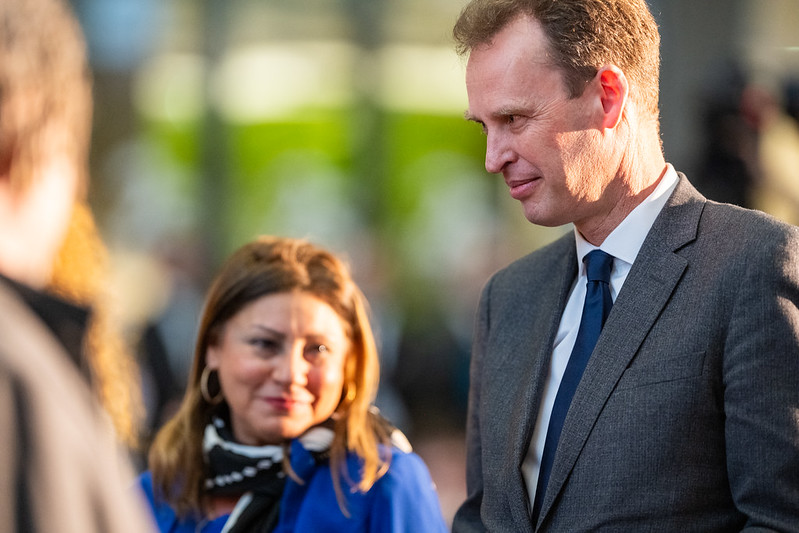ECB’s Elderson: Policy in a Good Place, Rate Path to Stay Data-Dependent
11 November 2025

By David Barwick – FRANKFURT (Econostream) – European Central Bank Executive Board member Frank Elderson on Tuesday said the ECB’s monetary policy stance remained appropriate and that rate decisions would continue to depend on incoming data.
Elderson told Spanish newspaper Expansión that the Governing Council was taking decisions “one meeting at a time,” as inflation was converging toward the 2% target in the medium term.
“[T]he economic environment remains uncertain, so we cannot commit to a pre-determined interest rate path,” he said. “What we need to do is to make sure that the rates are consistent with achieving our target, and so far they are.”
He declined to speculate about the ECB’s December projections, saying the risks to inflation were balanced. “Our price stability objective is symmetric and we are equally concerned about upward and downward deviations,” he said.
Among upside risks, Elderson cited trade fragmentation, higher defense and infrastructure spending, and the climate crisis. A stronger euro or re-routing of trade toward Europe could weigh on prices, he noted.
Elderson stressed that the ECB does not target an exchange rate. “We are dependent on data when setting our policy, not on the Fed,” he said, adding that exchange rate effects on inflation depend on the economic context and can take years to fully pass through.
Turning to Spain, he praised its “exceptionally good” growth, pointing to immigration, tourism, exports, and renewable energy. But he noted challenges from limited housing supply and weak productivity growth.
More broadly, he said Europe faced uncertainty but had seen some improvement in risks thanks to trade agreements and easing geopolitical tensions. Still, potential deterioration in trade relations or confidence could weigh on activity, he warned.
On fiscal policy, Elderson said defense and infrastructure spending could support growth, though he urged structural measures and completion of the banking and capital markets unions to improve competitiveness.
Regarding supervision, he said Europe’s banks were “strong and healthy” and that regulation since the global financial crisis had paid off. Simplification of rules was acceptable, he added, “provided the resilience of the banking system is preserved.”
He cautioned against deregulation, saying post-crisis standards like Basel III were essential for stability. “Simplification should not mean deregulation,” he said. “The priority should be implementing policies that promote growth and competitiveness.”
Elderson said the ECB was improving supervisory efficiency through a more targeted review process and a “fast-track” for securitizations. A high-level task force led by ECB Vice President Luis de Guindos would make recommendations on prudential simplification by year-end, he added.
He defended the Basel III framework as vital for a level playing field, saying all jurisdictions should implement it fully. Political interference in banking mergers should not undermine prudential principles, he said.
Cross-border mergers could strengthen banks and promote financial integration, Elderson said, adding that completion of the banking union and elimination of Single Market barriers were crucial.
Finally, he said the ECB would keep pressing banks to manage climate and environmental risks. The sanction of ABANCA for inadequate risk management was part of a consistent supervisory process, he said.
